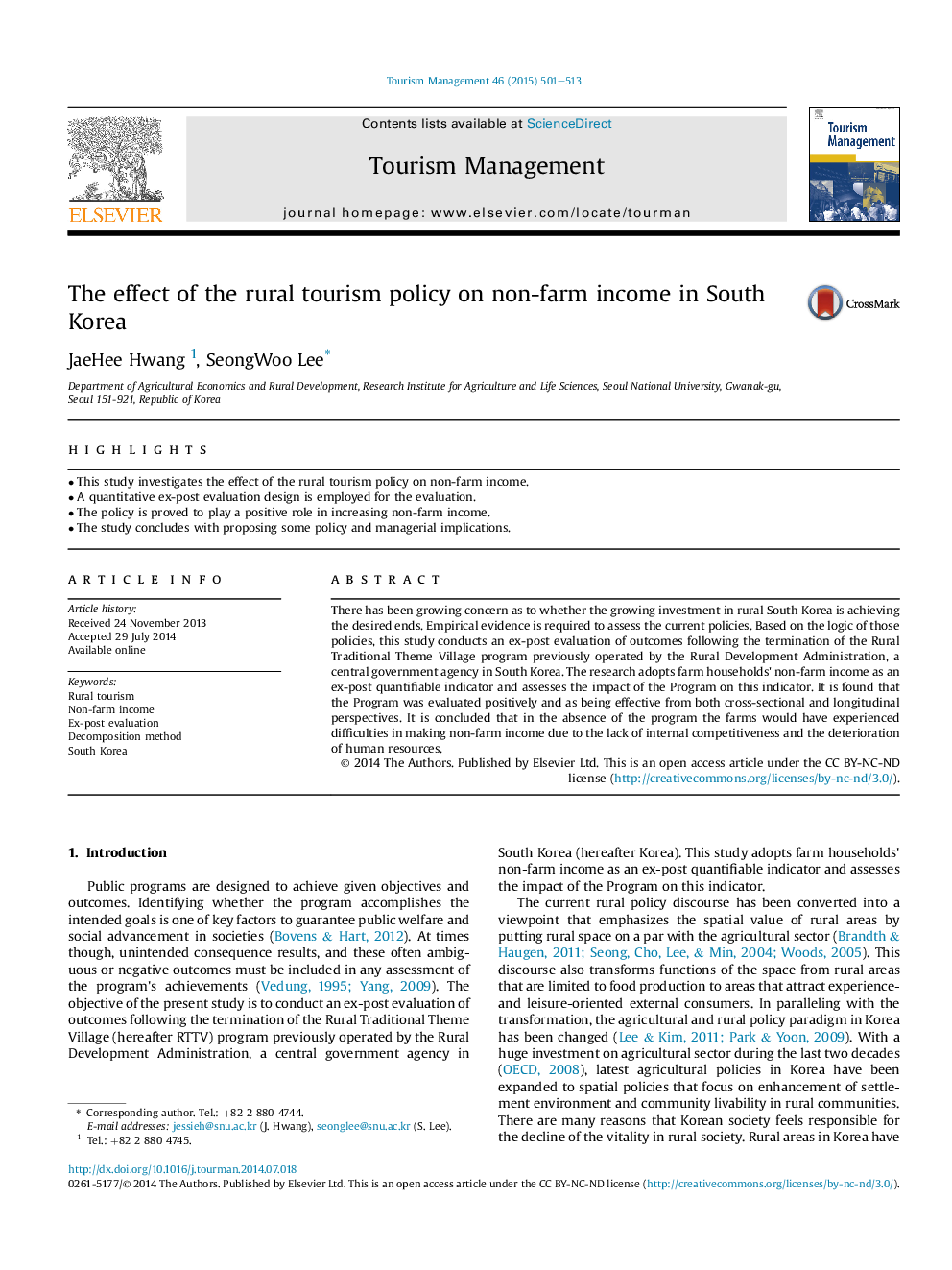| Article ID | Journal | Published Year | Pages | File Type |
|---|---|---|---|---|
| 7422278 | Tourism Management | 2015 | 13 Pages |
Abstract
There has been growing concern as to whether the growing investment in rural South Korea is achieving the desired ends. Empirical evidence is required to assess the current policies. Based on the logic of those policies, this study conducts an ex-post evaluation of outcomes following the termination of the Rural Traditional Theme Village program previously operated by the Rural Development Administration, a central government agency in South Korea. The research adopts farm households' non-farm income as an ex-post quantifiable indicator and assesses the impact of the Program on this indicator. It is found that the Program was evaluated positively and as being effective from both cross-sectional and longitudinal perspectives. It is concluded that in the absence of the program the farms would have experienced difficulties in making non-farm income due to the lack of internal competitiveness and the deterioration of human resources.
Related Topics
Social Sciences and Humanities
Business, Management and Accounting
Strategy and Management
Authors
JaeHee Hwang, SeongWoo Lee,
